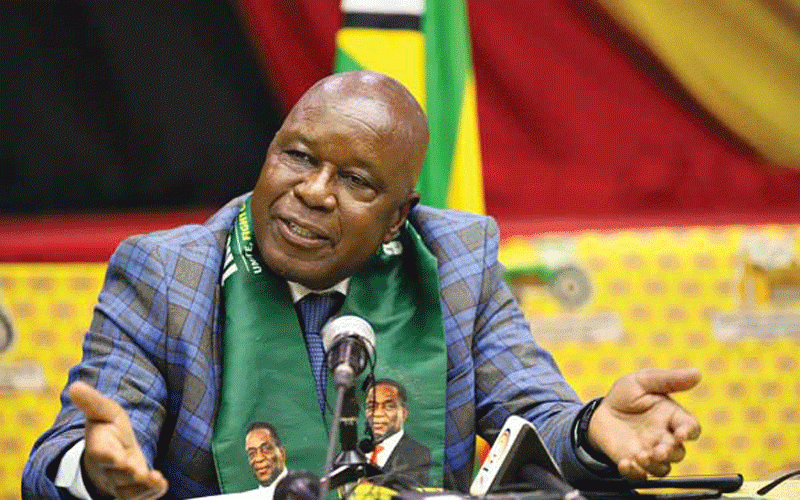
A ferocious gold rush erupted recently at Sherwood Block near Kwekwe where thousands of illegal gold panners descended following the discovery of gold deposits by residents of the city’s oldest high density suburb, Amaveni.
Illegal gold panners from across Zimbabwe swamped the mining claim now referred to as “gold fields” following reports some lucky panners had come across pure gold nuggets in the area.
The gold find reportedly triggered a spending spree in night clubs around Kwekwe where panners from Amaveni who had been “lucky” were buying expensive drinks for patrons.
Two lucky panners who were reported to have cashed in $40 000 each after selling gold nuggets picked from the field are still reportedly camped in the capital, Harare where they are looking for cars to match with their newfound wealth.
Police armed with guns and dogs were dispatched to the “goldfields” to lock down the area which had become chaotic after groups of vigilantes had taken control and were demanding “tax” from the panners.
But, can Zimbabwe turn Kwekwe into another Marange as the country desperately tries to recover its derailed economy?
This development has not only raised fresh hopes, but a scramble reminiscent of that for diamonds in Marange as well as fears of another bloody battle seems to be looming.
It is reported that a huge 38kg gold nugget was discovered by the two lucky panners who stumbled onto gold nuggets worth thousands of dollars.
- Chamisa under fire over US$120K donation
- Mavhunga puts DeMbare into Chibuku quarterfinals
- Pension funds bet on Cabora Bassa oilfields
- Councils defy govt fire tender directive
Keep Reading
Kwekwe has been the pivot of gold mining dating back to the 1920’s, it being situated in the Great Dyke region renowned for its rich mineral deposits.
In the one week that 600 illegal panners were allowed to dig for gold, over 1 100grammes were surrendered to the police gold section for safekeeping.
Worrying though is the fact that since the gold find, tens of thousands of remote mining sites have sprung up mostly on the Great Dyke and in Kadoma, Empress, Totololo and Zhombe to name but a few, igniting more use of mercury.
Mercury ravages the nervous system of miners and their families. It also travels thousands of miles in the atmosphere, settling in oceans and river beds elsewhere and moving up the food chain into fish.
Small-scale gold mining is the second-worst source of mercury pollution in the world, after the burning of fossil fuels. Mercury’s impact is evident in the country’s mining regions such as Midlands, Manicaland, Bulawayo, Bindura and Mhangura.
These illegal gold mining sites stretch several kilometers, stripped of trees and dotted with mercury-laced ponds.
The moonscape-like dunes and abandoned mine sites speak volumes about what illegal gold mining activities can do to the environment.
Without getting caught up in the back and forth debate on natural resource curse, it is a fact that mineral resources can be exploited and managed to contribute to poverty reduction and growth in Africa, in particular Zimbabwe.
This is premised on the recognition that resources are part of the stock of natural capital that Zimbabwe has been richly endowed with, which if exploited under appropriate conditions, can spur the development of the country.
Hence, the appropriate public policy question for Zimbabwe is not whether to mine or not to mine, but where should mining occur and how to ensure that it contributes as much as possible to growth and poverty reduction.
It is also important to note that despite its impressive mineral resource endowment, Zimbabwe, and Africa at large, remain the poorest and the least developed, and that overall, mineral resources revenue streams have not been used appropriately to foster development, but for political expediency.
What happened at Sherwood Block mining claim has indeed shown that linkages between mining and other sectors of the economy are still “very weak”.
Where mining has contributed to better development outcomes, as is the case in Botswana, South Africa and Namibia, success could be linked to sound management of the sector, good governance, respect of the rule of law, good infrastructure and overall favourable environment for business development.
On the opposite extreme and in a not distant past, the cases of DRC, Sierra Leone and Liberia depict lost opportunities, corruption, conflict and mismanagement of resources.
The Kwekwe scenario should not have occurred had Obert Mpofu’s Mining ministry adequately profiled the sector and developed a thorough understanding of the positive and negative impacts of mining for poverty reduction and growth promotion.
And so, to be effective going forward, mining policies should be part of an overall poverty reduction and growth strategy, and should be mainstreamed in comprehensive and sound poverty reduction strategy papers or other development plans such as indigenisation and, MTP among others.











